Tachyon tidbits featuring Michael Moorcock, Charles de Lint, Jeff VanderMeer, Jo Walton, and Kate Elliott
The latest reviews and mentions of Tachyon titles and authors from around the web.

Michael Moorcock (source: A.V. CLUB), Charles de Lint (Leslie Howle), Jeff VanderMeer (Kyle Cassiday), Jo Walton, and Kate Elliott (April Quintanilla)
SOMA FM shares the podcast of Michael Moorcock’s appearance at the April SF IN SF.
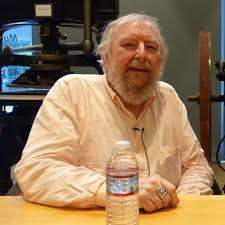
Michael Moorcock in conversation with Terry Bisson, along with questions from the audience.
Cathy Pagano on WISDOM OF ASTROLOGY references Charles de Lint’s “The Stone Drum” from THE VERY BEST OF CHARLES DE LINT.
“The Moon likes secrets,”Meran said. “And secret things. She lets mysteries bleed into her shadows and leaves us to ask whether they originated from otherworlds, or from our own imaginations.” The Stone Drum, Charles de Lint.
This month’s Gemini/Sagittarius Full Moon is a storyteller Moon. It calls us to take a look at how our Mind works. How the words and images we live with every day shape our perceptions of the world.
The Sagittarius Full Moon asks us to go on the quest for the secrets of our deepest truths, often hidden behind our words. So be prepared to have an adventure. The Gemini Sun scouts out the many possibilities and opportunities that are available to us, and our Sagittarius Moon bleeds her shadows on our lives and the world. The opportunity offered is to clear up and let go of old misguided beliefs. Beliefs that no longer serve our new needs. Beliefs that are bleeding us dry of our vitality, hope and vision.
Some perspectives arise out of a mixture of our fears and hopes. Some are rooted in our deepest heart truths. Use the sword of clear Mind to make your choices. It is the voice of our free will. We get to choose. Where do your values lie? What perspective rings the truth of your heart? Follow the pull of your heart to the mystery awaiting you.
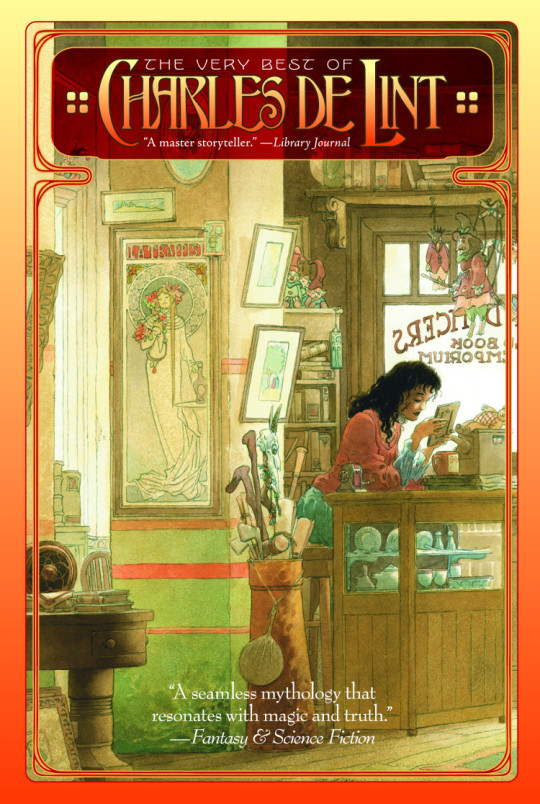
On the Italian site L’INTELLETTUALE DISSIDENTE, Maria Ceraso discusses Jeff VanderMeer’s Area X trilogy.
The theme of metamorphosis is undoubtedly one of the most frequented and fruitful in the literary imagery of all time. We find examples already in the Homeric poems and, in the Roman sphere, in the Ovidian masterpiece. Dante employs metamorphosis as one of the mechanisms of retaliation, Stevenson links it to the chiaroscuros of the human psyche, Kafka engages it in modernity. The term metamorphosis it derives from the Greek: it indicates a passage of form, whereby the subject who suffers it changes in its external appearance, while maintaining its identity unaltered. This is a common phenomenon: just think of the growth of amphibians or the cycle of plants. Probably the observation of these manifestations of nature has contributed to the elaboration of myths by the ancient man, and perhaps it is possible that he continues to do so today. Eliade reminds us that the myth has never completely disappeared: it is alive in dreams, in the fantasies and in the nostalgia of modern man. And the writers, then? Are they still mythographs?
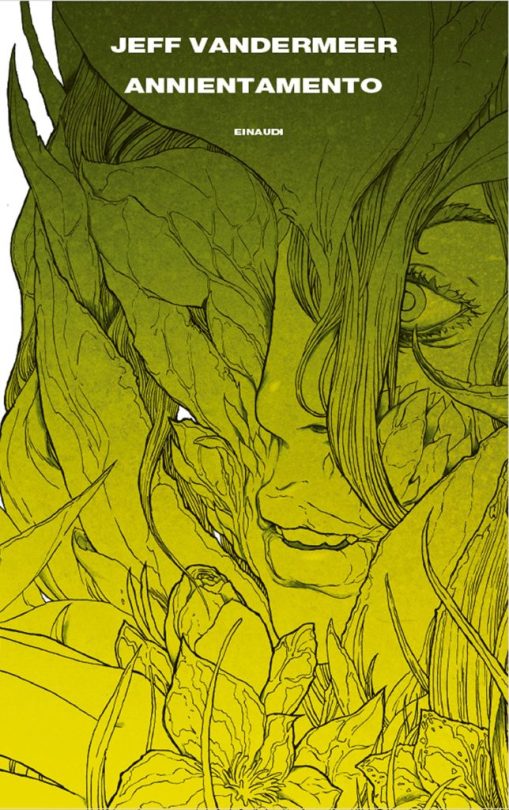
Jeff VanderMeer definitely tries. In the Trilogy of Area X, one of his last literary labors, each volume is the piece of an unprecedented analysis of the new mutations of contemporary man. Author of stories and novels, journalist for the New York Times, the Guardian and the Huffington Post, Jeff VanderMeer is known for having coined the definition of New Weird, a genre in which the novels composing this trilogy are also fully registered.
The New Weird is a type of fiction of realistic-urban setting that subverts the classic idea of diegetic space found in traditional fantasy, mostly choosing complex and realistic models of real world as a starting point for creating environments that combine science fiction elements. and fantasy. The New Weird has a deeply present essence that, for the construction of style, tone and effects, often resorts to elements typical of surreal or transgressive horror, combined with the stimuli given by the influence of New Wave writers or movements similar (including also precursors such as Mervyn Peake and the decadent French and English).
[J. VanderMeer, Notes and Introduction, in THE NEW WEIRD, ed. by A. and J. VanderMeer, Tachyon Publications (2008)]
(Translation from Italian courtesy of Google)
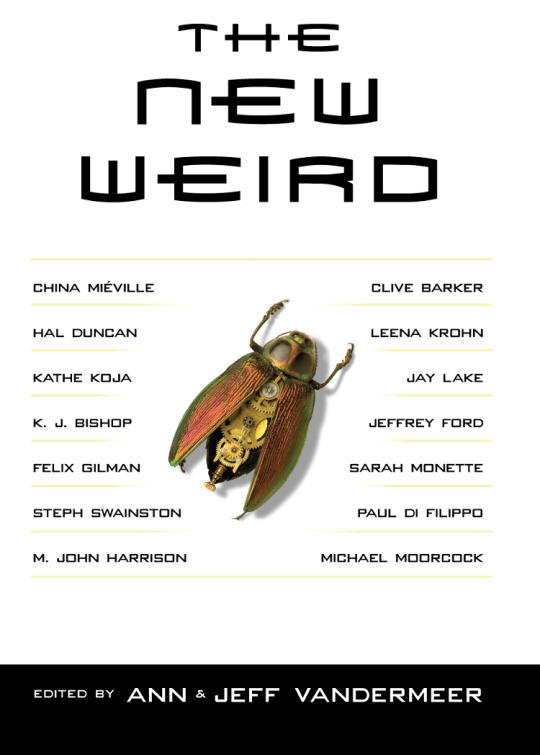
For BOOK RIOT, Teresa Preston includes Jo Walton’s Small Change Trilogy and Kate Elliott’s Spirtwalker Series among What If? 15 Great Alternative History Books and Series.
The book and book series listed below are just a few examples of the many creative explorations of history that are out there. Some are set in the real world, but in a version where a past event turned out differently. And some introduce a fantasy element and consider how history would be different if those fantasies were real. But all of them hinge on the question, “What if…?”
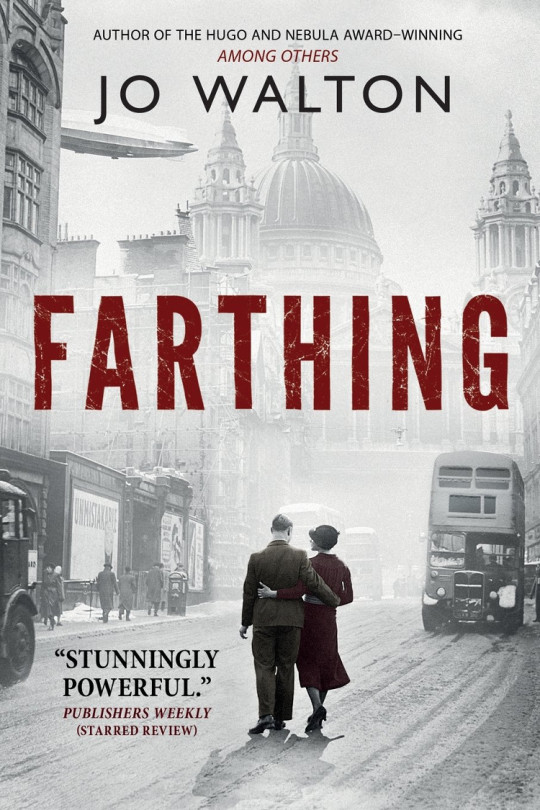
THE SMALL CHANGE TRILOGY BY JO WALTON
The first novel, Farthing, is set in 1949, in a version of England that made peace with Hitler instead of continuing the war. The novel begins with a murder, and most of it reads like a straightforward mystery. The subsequent novels, Ha’Penny and Half a Crown, follow Inspector Carmichael, the detective who investigated the Farthing murder, as he watches England plunge further into darkness.
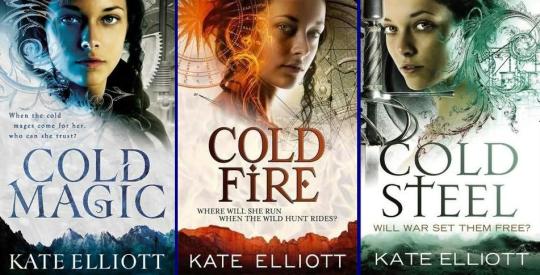
SPIRITWALKER SERIES BY KATE ELLIOTT
Beginning with Cold Magic, this steampunk series is set in a version of the 19th century in which the Ice Age never ended, changing the balance of power across the globe. Mages and spirits and dragons also exist in this version of our world.
For more information about THE VERY BEST OF CHARLES DE LINT, visit the Tachyon page.
Cover by Charles Vess
For more info about THE NEW WEIRD, visit the Tachyon page.
Cover by Ann Monn
